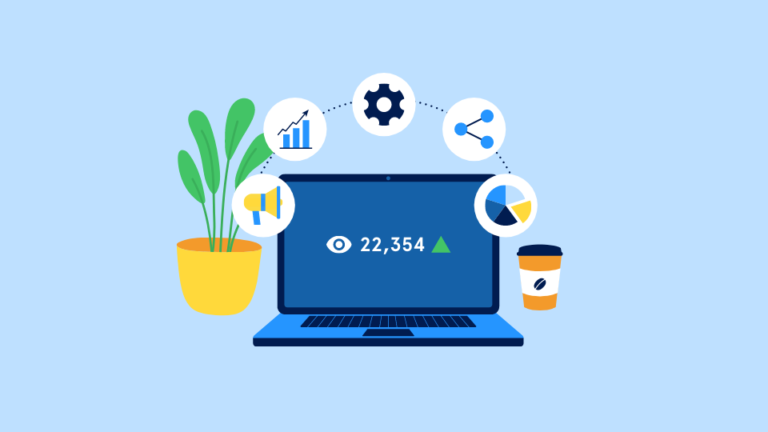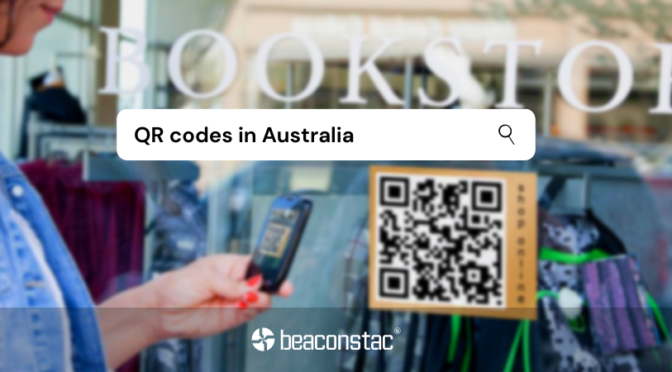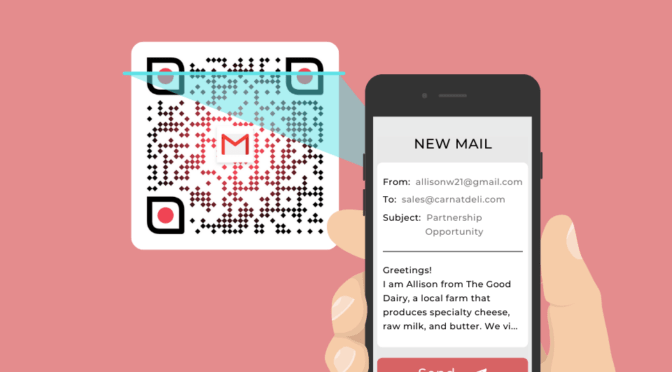If your business has a physical location or many customers in one place, you’ll want to attract web traffic from a localized area.
Local SEO companies can help with this, and there are many tricks you can use to let both prospective customers and search engines know where you’re based. Creating local paid ads, targeted QR codes, localized content, and more can help.
In this article, I’m going to dive into how you can improve your local SEO strategy to increase your organic traffic.
Target locals with ads
One strategy you can use is to target a particular group of internet users with location-based paid ads. If you’re trying to promote your local business or tailor your ads to customers in a specific area, this is a great strategy to drive the right people to your website. Irrespective of the scale of your business, incorporating either big or small business PPC management tips can yield superior results by significantly enhancing the performance of your ad campaigns.
There are lots of ways you can run a successful local ad campaign! You should mention your location in the copy, include your ZIP code if applicable, use local dialect where appropriate, and even provide directions from a well-known landmark. If you’re short on bandwidth or just starting out and want to make sure your ads perform the way you want them to, you can also take help from a digital marketing agency or a PPC agency specializing in local ads who can help you generate high-quality leads from your local ad campaigns.
Consider talking about what’s happening around your area to attract more people. Think how you can talk about big college football teams, local hashtags, or favorite foods in the city!
Create localized content
Content marketing is a great way to drive traffic to your website! And the good news is that you can boost your local SEO and attract a lot of nearby customers by creating content with a local angle, too.
For instance, a real estate agent could create a round-up of interior decorators in the area, or a dog groomer could put together a listicle of dog-friendly restaurants nearby. Rather than creating this content in-house, It’s probably a good idea to outsource content writing to agencies which understand the target market better, so they can create more relevant localized content. When producing high-quality localized content, leveraging tools like CAT tools (Computer-Assisted Translation tools) can be invaluable. According to Bureau works, these tools help ensure consistency and accuracy across translations, especially when adapting content for different local markets. When it comes to finding the best copywriting services, partnering with professional agencies can ensure high-quality content that effectively engages your audience.
Airbnb does local content well across the board. Since they have hosts worldwide, it makes sense that they would publish local content that focuses on specific areas. In the Local Lens section of their blog, they have a vast variety of articles covering the different restaurants, destinations, parks, and more across all sorts of cities. One report, for instance, covers the top places to visit in San Francisco for coffee, photo ops, and more.

The Mountain, an eco-friendly apparel company, based out of New Hampshire, targets locals well with their content, too. In one of their blog posts, they target their audience by showing how they got involved with a local college to help students develop STEM skills.

Target localized keywords with your content
It’s also worth conducting local keyword research to see what relevant searches people are carrying out in your area. Many different keyword research tools will let you input a specific location to make your research more accurate! Also, consider looking into keyword intent behind certain searches; some people might be looking to make a purchase, while others are just looking for advice or information. You need to consider this when targeting relevant keywords on different pages of your site.

If your business has several locations, you can implement a strategy as the Bay Property Management Group does. They have specific pages for each of their locations and can target many keywords relevant to these different bases.
Use this as inspiration and replicate some of the elements, like keyword usage and location names in your headers. For instance, a promotion for tiny homes for sale Louisiana, include photos of the location, and mentions of the area in the body copy. Additionally, by having their address and phone number on each location page, they give Google a better idea of where each of their offices is located.

Similarly, Jeni’s Splendid Ice Creams wrote a blog post about one of their new locations. They target a lot of Chicago-centric keywords in the post, which tells search engines like Google and Bing more about their location.
If you have multiple stores, consider publishing content relevant to their locations like this — you could provide updates on location openings, events, new products, and more. Lastly, you can check keyword rankings to ensure your content reaches the right audience.
Build links to drive traffic from local sites
It’s also worth networking with local businesses in your area to build up your backlink profile. If a lot of websites related to your location are linking to your website, this will give Google a better idea of where you’re based, which will help to improve your local rankings.
There are several local citations and link-building tactics you can use. For instance, with the help of Google News API you can get access to real-time data for your location and discover a bunch of local businesses you can collaborate with. Another effective strategy is leveraging a local citation finder to ensure your business is accurately listed across various directories and platforms. If you run a hotel, you could create a listicle of great restaurants nearby — and then contact popular SEO companies or link building agencies you’ve mentioned to see if they would be willing to repay the favor. Or, you could offer to write a guest post for the website of another local business to get your name out there and earn your website a backlink.
If you’re hosting an event or launching a new product, you could even get in touch with the local press to see if they would be willing to cover it. You can also use relevant SEO services and SAAS Link building to understand areas of improvement and help search engines better understand where you’re located, and improve your local SEO and reaping the benefits of link building.
Optimize your site for local search engines
If you’re targeting customers in a different country, you need to consider that they might have another preferred search engine. Google is pretty much the default search engine in the states but, in China, it only shares 2.58% of the market. You have to keep in mind which tools and platforms your ideal customers will be using when looking for websites like yours, and optimize your website with this in mind!
If you’re unsure where to begin, do a quick check with StatCounter to see what the top search engines are in the country you’re targeting. Yandex, for instance, is the leading search engine of Russia.
Moz has a great article on international SEO, with tips on making your content available in multiple languages, linking to local content, ranking on top global search engines, hosting on an international IP, and more.
Alternatively, partnering with an international SEO agency can help you learn the ins and outs of International SEO while effectively increasing your visibility in international markets. For example, Working with a New York SEO agency can provide you with expert insights and localized strategies that align with both global trends and the competitive U.S. market.
Connect with local people and businesses on social media
You can increase your brand awareness among your ideal customers by connecting with local individuals and companies through social media.
Use localized hashtags, implement QR codes for social media platforms, like, comment, and share local posts, mention local businesses in your Tweets, and post content locals will be interested in. This will not only help you build a relationship with your potential customers, but it will also make you more visible as a community business leader!
If you’re not a social media pro yet, you won’t want to spread yourself too thin, so you must get a good idea of which channels will provide you with the most engagement. SocialPilot has a great list of social media analytics tools that can help you work this out. These will also help you to assess which types of posts are the most popular, so you can devise the most effective social media analytics strategy to support your business.
Consider taking your marketing offline
I’ve talked a lot about online marketing, but doing things the old-fashioned way can be effective, too.
Investing in local TV and radio ads and hanging physical advertisements can help get the word out about your local business. Uniqode has an excellent article for more advice outlining how you can funnel your customers offline to online content. They cover user-generated content, testimonials, in-person discounts, and more!
There are more modern forms of offline marketing, as well. Bluetooth Beacon Marketing, for instance, can send notifications to the smartphones of people close by, encouraging them to visit your location by letting them know about current offers, product launches, or any ongoing events. By simply wandering into the vicinity, potential customers can get a ping on their phone telling them to stop by your business!
Summary
If your business has a physical location or serves a specific area, you’ll want to drive more localized traffic to your website. Fortunately, there are lots of different ways that you can attract these customers, including through local SEO tactics, networking in your community, and offline marketing. It’s a good idea to get in touch with any local SEO agency in your town to know what works best for your business.
From there, you can hopefully turn these visitors into regular buyers. For more help, take a look at Uniqode’s guide on how to get more leads from your website. Sales await!
Aaron Haynes is CEO and co-founder of Loganix. The company is an SEO fulfillment partner for digital marketing agencies and professionals, which provides the services businesses need to improve their online visibility and grow. If you liked this article, check out the Loganix blog, where you’ll find more SEO guides full of expert advice.











